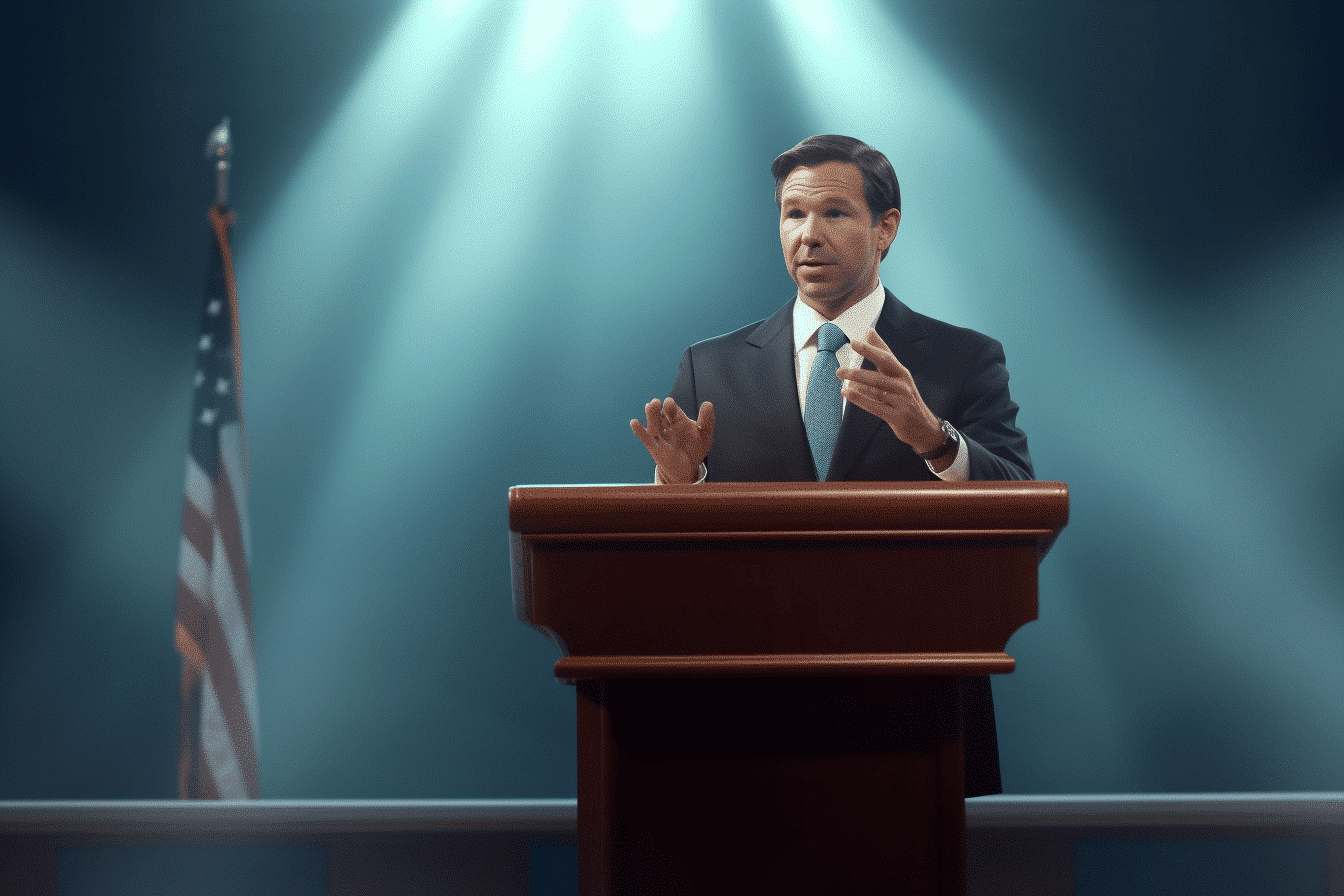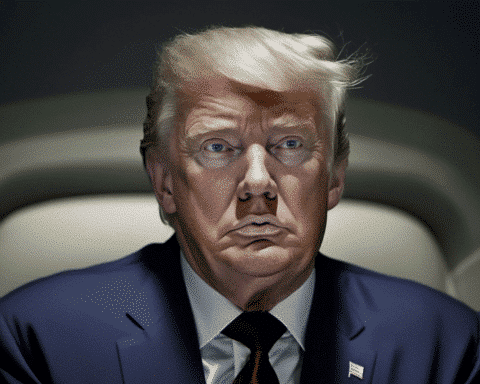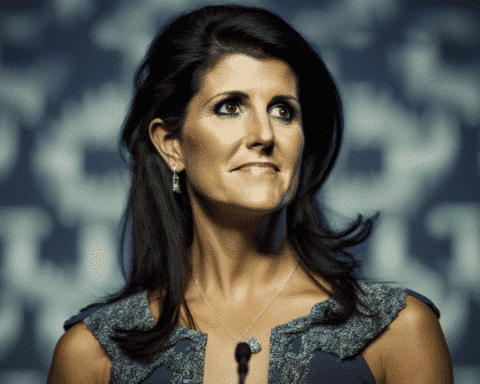The competition between former President Donald Trump and Florida Governor Ron DeSantis intensified on Tuesday, with the two top Republican presidential contenders taking potshots at each other during overlapping campaign events in the pivotal early-voting state of New Hampshire.
At a Hollis town hall, DeSantis committed to “actually” construct the U.S.-Mexico border wall that Trump could not finish during his presidency. He further promised to dismantle Washington’s entrenched power structures, which he claimed Trump had been unsuccessful.
Later, Trump responded at a Republican women’s luncheon in Concord, suggesting that DeSantis had to accept being the runner-up in the primaries. He accused the Florida governor of endorsing cuts to Social Security, Medicare, and other entitlement programs to control federal spending.
More than just verbal sparring, these conflicting events underscored each candidate’s evolving approach. DeSantis engaged extensively with audience questions, a practice commonplace in New Hampshire politics, which he had avoided during his previous visit, inviting criticism of being rigid and overprepared.
In contrast, Trump delivered a lengthy, impromptu speech without engaging with questions in Concord. However, he addressed queries at a later stop in Manchester, the location of his New Hampshire campaign office.
DeSantis used his response to highlight critical differences with the former president when asked about those who had voted for Trump twice in the hope of him “draining the swamp” in Washington.
“The swamp has not been drained. It’s worse today than ever,” DeSantis argued, adding that such promises are insufficient because a succeeding president “can just refill it.”
DeSantis aimed to outshine Trump by challenging his enduring grip on the national Republican party. He criticized the GOP’s “culture of defeat” under Trump. He highlighted the “massive red wave” the party had anticipated but failed to materialize nationally in the previous year’s midterm elections.
“In Florida, we had a red wave,” DeSantis claimed, emphasizing his landslide reelection victory. “That’s because we delivered results in Florida.”
Despite Trump’s solid loyalty base among leading Republicans, there’s some evidence that the criticisms against him are gaining traction. Speaking about Trump on Tuesday, House Speaker Kevin McCarthy admitted, “He can win that election,” but raised doubts about whether he is the strongest candidate.
In his speech, Trump pointed out his substantial lead in primary polls. He also criticized DeSantis’s stance on entitlement programs. He promised to “drain the swamp once and for all,” although he primarily used this phrase to target President Joe Biden rather than DeSantis.
DeSantis responded to questions about the pro-Trump mob that stormed the U.S. Capitol in January 2021, stating, “If we keep revisiting things that happened two or three years ago, we’re going to lose.”
The simultaneous campaigning by both candidates underscored the key role that New Hampshire, as the nation’s first GOP primary state, will play in determining the next Republican presidential nominee.
Despite some displeasure caused by DeSantis scheduling his event at the same time as Trump’s luncheon address, he remained undeterred. At his town hall, DeSantis spoke about his newly proposed immigration policy and his promise to “actually build the wall.”
While tailoring his message to New Hampshire, DeSantis also tied border security to curbing the opioid epidemic, severely affecting the state. He pledged to implement the “most aggressive” policy against drug cartels.
“We have to do it,” DeSantis asserted, “because it will save lives.”
As the 2024 presidential race heats up, the rivalry between former President Trump and Florida Governor DeSantis is poised to shape the future of the Republican party. With stark differences in their approach and criticisms of each other’s past performances, the two candidates strive to win over party members and the broader electorate. As they spar over crucial issues such as immigration and entitlement programs, voters will closely watch to see who emerges as the stronger contender for the Republican nomination. Their duelling events in New Hampshire signal the beginning of what promises to be a fierce competition for support in this crucial early-voting state.




